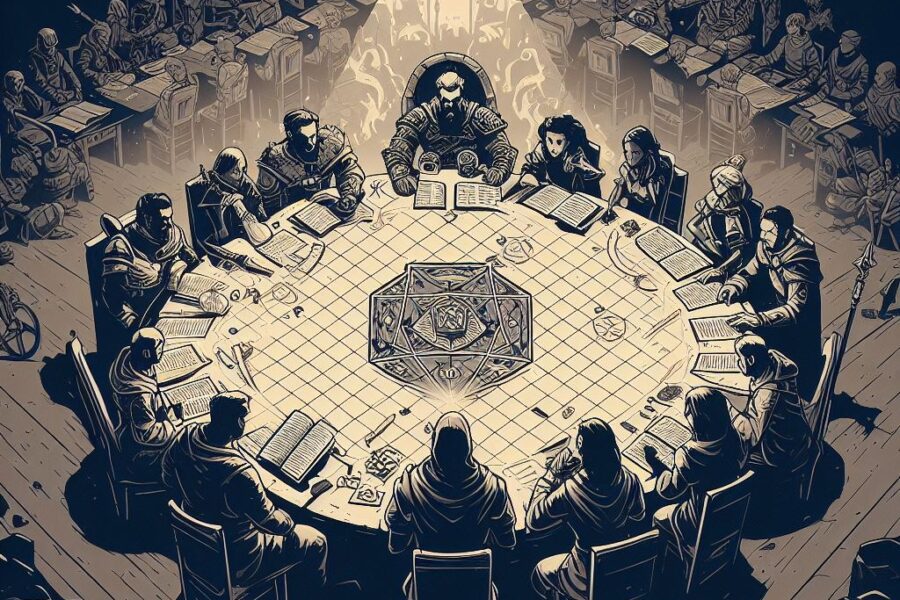
House rules in Dungeons & Dragons can significantly enhance the gameplay experience, offering unique twists to standard rules. In this article, well explore into various creative house rules that can add depth and excitement to your campaigns.
Table of Contents
- Degrees of Success in Skill Checks
- The Importance of Player Agency
- The DM is Always Right
- Revised Critical Hit Rules
- Multiclassing with Intent
- The Chaos of the Ring of Bears
- Throwing Down a Token
- Momentum Dice Mechanics
- Exhaustion from Reviving
- Simplified Encumbrance Rules
- Detect Plot Spell
- The Power of Religious Prayers
- House Rules for the Toughness Feat
- Conclusion and Call to Action
- FAQs About D&D House Rules
Degrees of Success in Skill Checks
One of the most engaging house rules revolves around skill checks. Instead of a simple pass or fail system, introducing degrees of success can create a more dynamic gameplay experience. For example, when attempting to pick a lock, players can experience a variety of outcomes based on their roll.
A natural one could result in the lock pick breaking, causing a scene that alerts nearby guards. If a player rolls under five, the pick breaks, but they remain undetected. Rolling under ten means the door doesn’t open in time, forcing the character to hide before being seen. Success occurs with a roll over ten, allowing them to slip through the door.
Additionally, a natural twenty could mean not only successfully opening the door but also breaking the lock entirely, ensuring it won’t be locked again. This layered approach to skill checks encourages players to think creatively and strategize their actions.
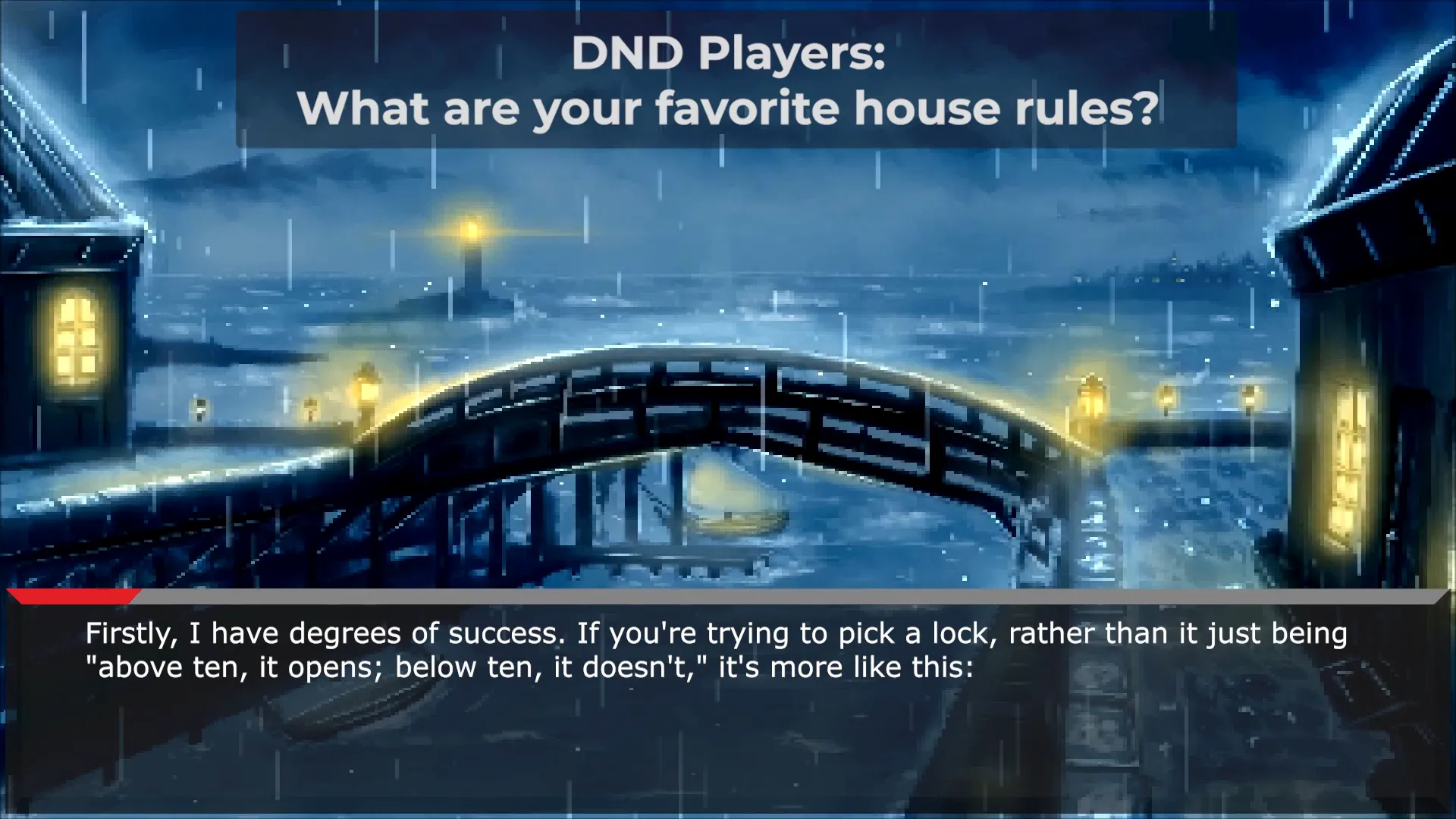
The Importance of Player Agency
Player agency is crucial in any tabletop RPG. Allowing players to determine their own course of action, without restrictions on what they should roll, enhances their investment in the narrative. By not disclosing target numbers, players can roll and the DM can then explain outcomes based on their results, leading to unexpected advantages or challenges.
This method can lead to memorable moments, such as when a player decides to rip a door off its hinges instead of using conventional methods. Such decisions, combined with the randomness of dice rolls, create a unique and engaging experience.
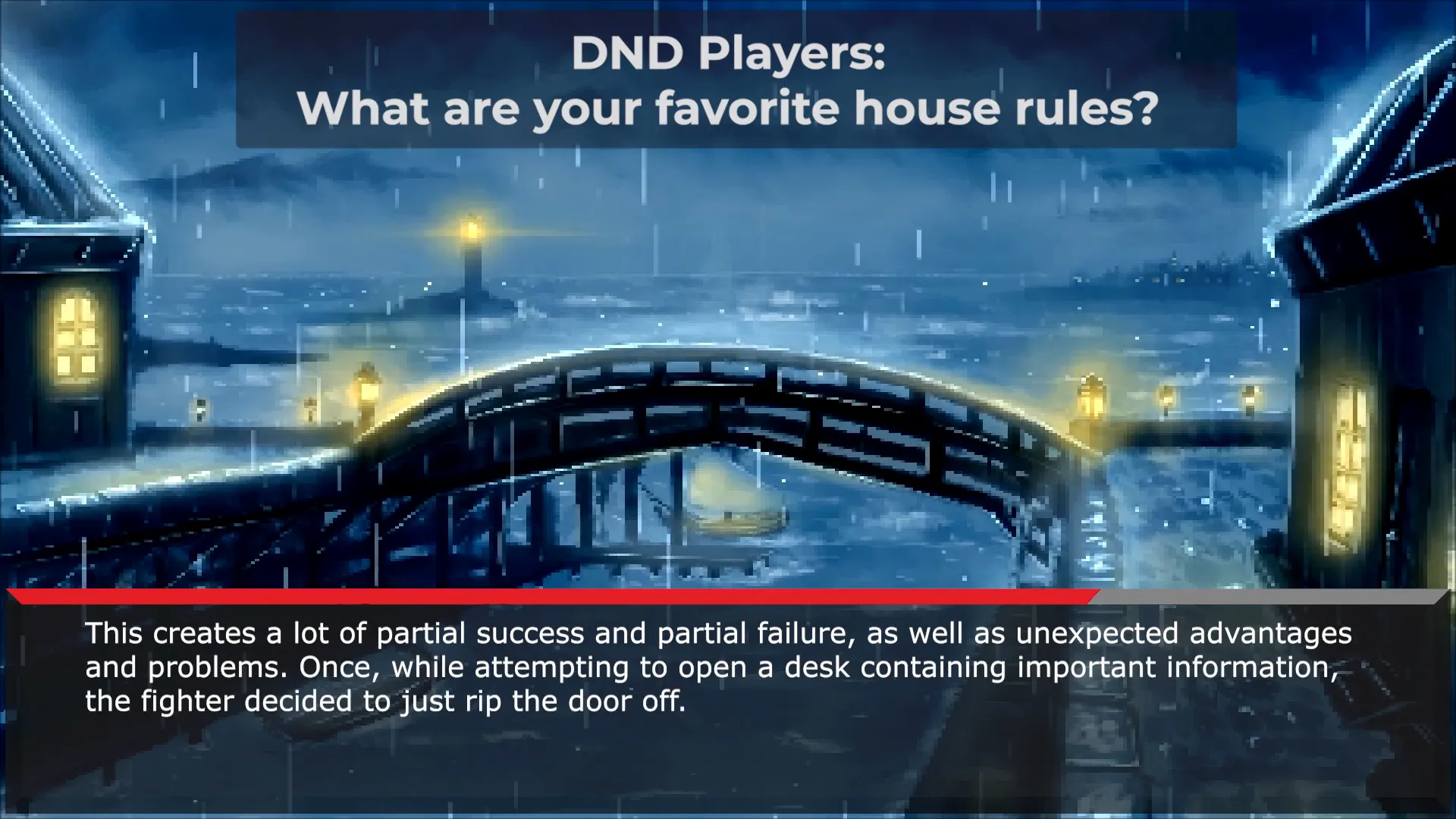
The DM is Always Right
In the realm of Dungeons & Dragons, maintaining the flow of the game is essential. A foundational house rule is the principle that the DM is always right. This avoids unnecessary debates over rules and keeps the game immersive. If players disagree with a ruling, they can revisit the rules during downtime without disrupting the gameplay.
This approach fosters respect for the DM’s authority and encourages players to focus on storytelling rather than rules lawyering. Accepting the DM’s decisions promotes a smoother gaming experience and enhances group cohesion.
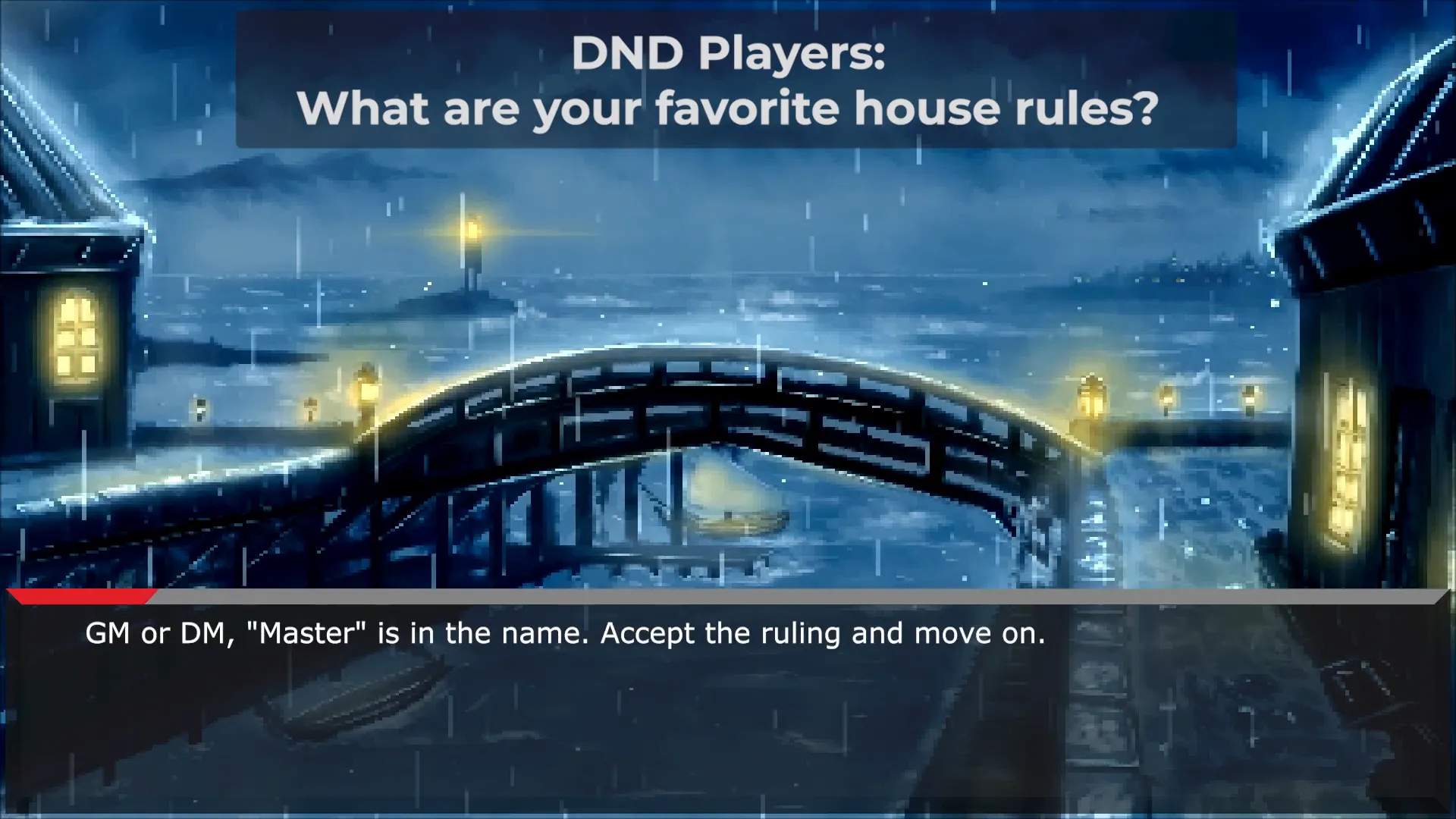
Revised Critical Hit Rules
Critical hits can be a game-changer in combat. A revised rule states that any critical hit should deal more damage than just the maximum of normal rolls. At many tables, rolling a natural twenty guarantees a hit, but the damage calculation can feel lackluster. By maximizing damage rolls and adding bonuses, critical hits become significantly more impactful.
This method not only increases excitement during combat but also allows for a more satisfying experience when landing a critical hit. For example, a paladin using a greatsword can maximize their damage output to create thrilling moments during battles.
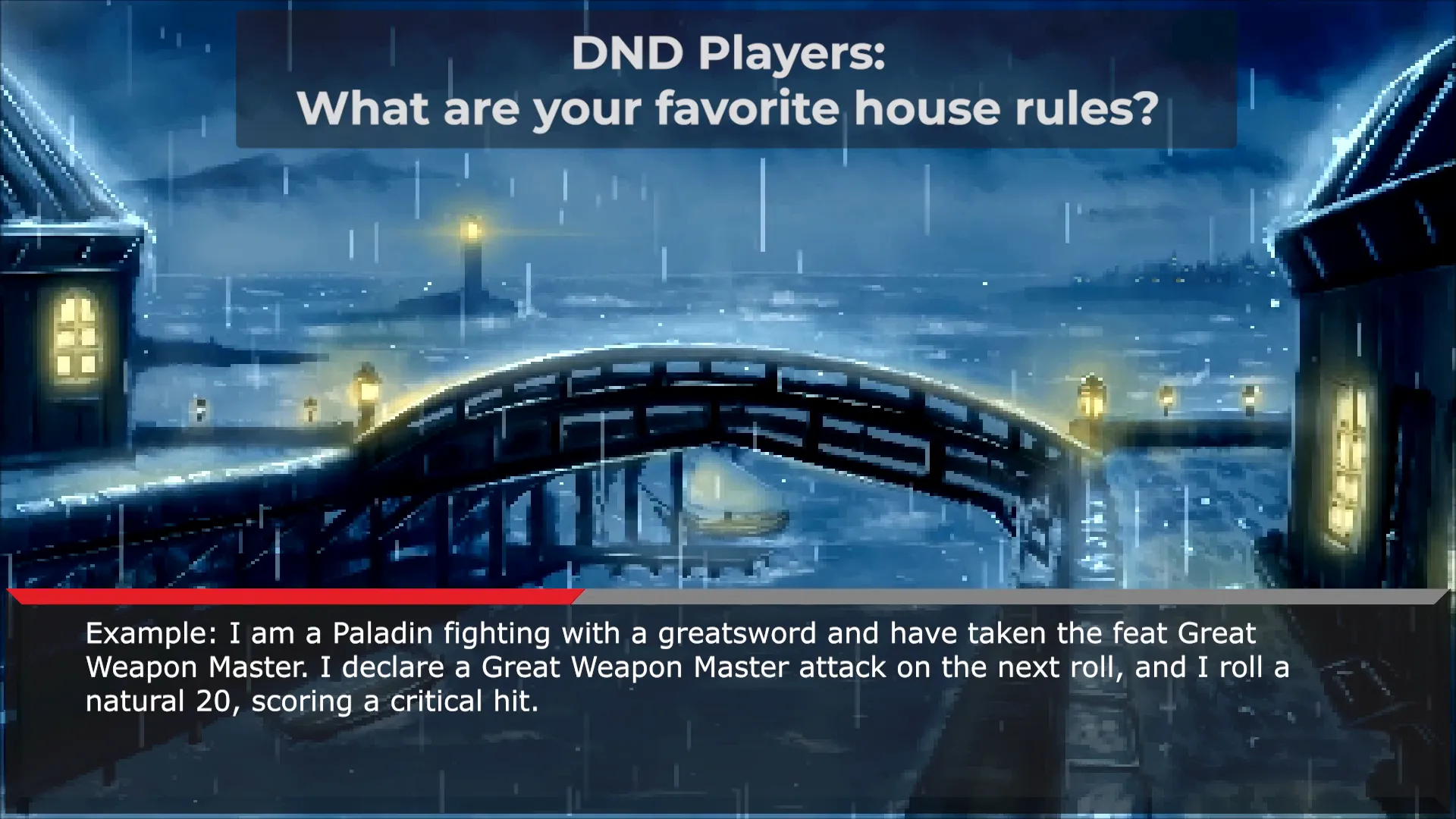
Multiclassing with Intent
Multiclassing can add depth to character development, but it should be approached with intention. Rather than choosing classes solely for mechanical advantages, players should seek narrative justification for their choices. This encourages players to think about their character’s growth and how their experiences shape their abilities.
For instance, a bard who becomes a paladin due to a life-changing event adds rich storytelling elements to gameplay. This depth makes every decision meaningful and enhances the overall experience for the entire group.

The Chaos of the Ring of Bears
Sometimes, the most absurd ideas can lead to the most enjoyable gameplay. The Ring of Bears, initially a joke, became a legendary item in the campaign, creating chaos with its ability to replace any word in a spell with “bear” or “bears.” This whimsical rule turned standard spells into hilarious and unpredictable events, often with wild consequences.
For example, a fireball spell could become a “bearball,” resulting in a flurry of bears raining down on enemies. Such creativity not only entertains but also fosters a lighthearted atmosphere at the table.
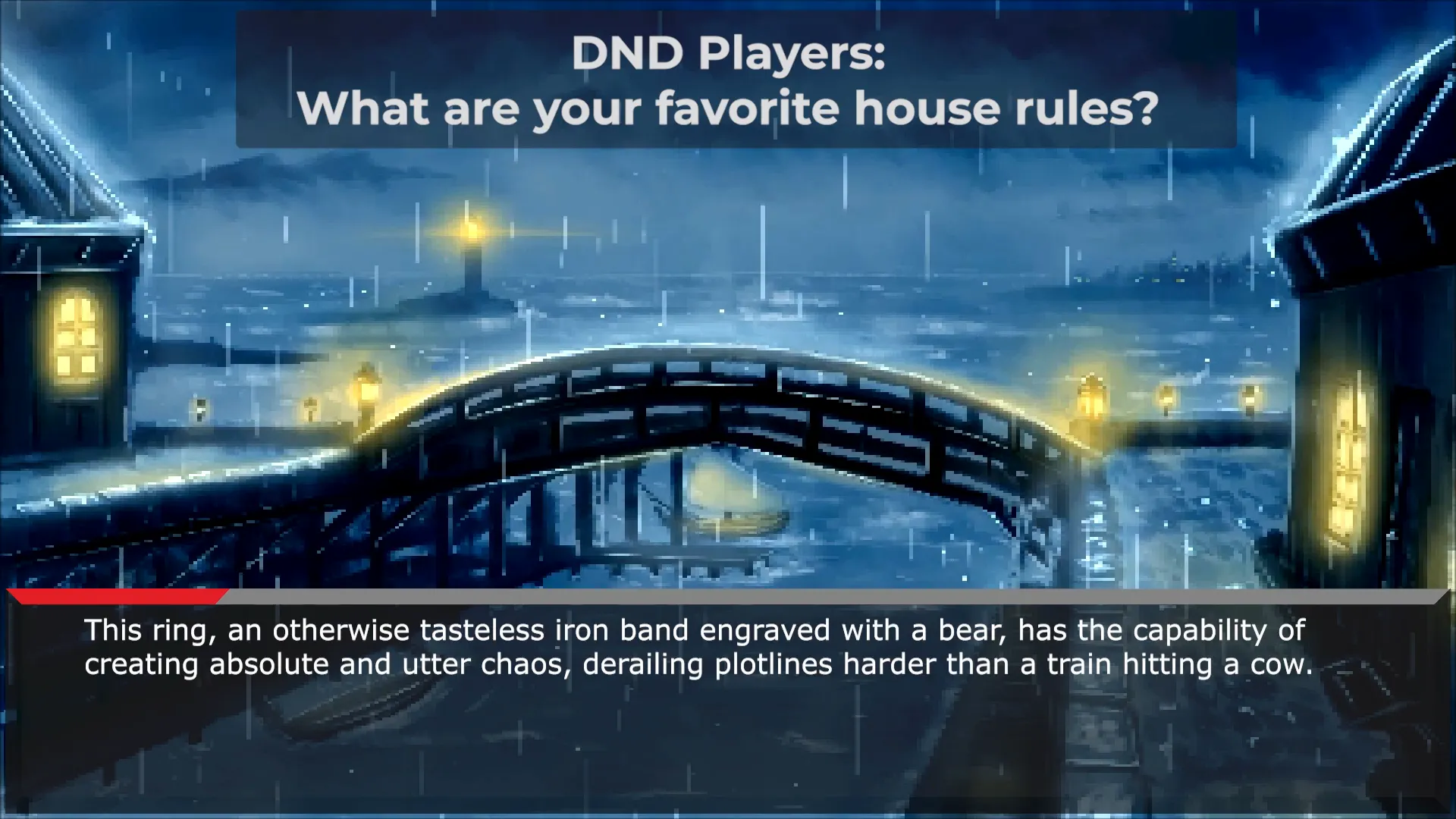
Throwing Down a Token
The “throw down a token” rule provides a mechanism for players to cut through frustration when the game stalls. If a player feels stuck, they can request a token to expedite the process. This allows the DM to provide critical information without derailing the game or causing unnecessary delays.
Tokens can be physical or conceptual, and their use encourages communication between players and the DM. This rule ensures that the game flows smoothly and keeps everyone engaged.
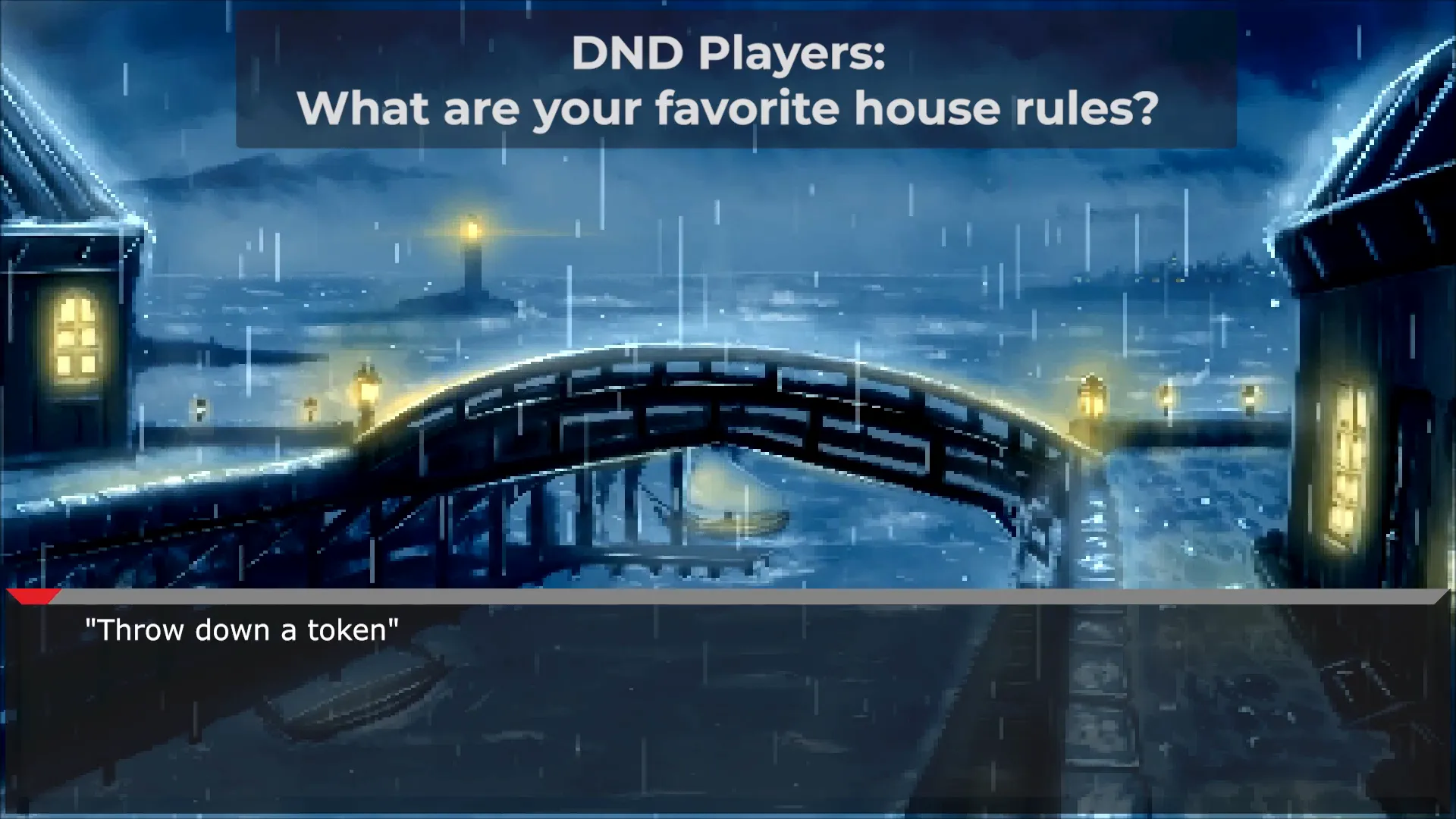
Momentum Dice Mechanics
Momentum dice introduce an exciting twist to melee combat, rewarding players for creatively engaging with their environment. When a character charges at an enemy, they can deal additional damage by utilizing momentum. For example, running twenty feet before making an attack could add an extra 1d6 damage, albeit with a disadvantage due to the telegraphed movement.
This rule encourages players to think strategically about their movement in combat. Imagine a scenario where a character swings from a rope, potentially adding 2d6 to their damage. Or picture a half-orc diving from a great height to strike an enemy, dealing an impressive 8d6 damage! Such mechanics not only enhance the thrill of battle but also foster a dynamic and engaging gameplay experience.
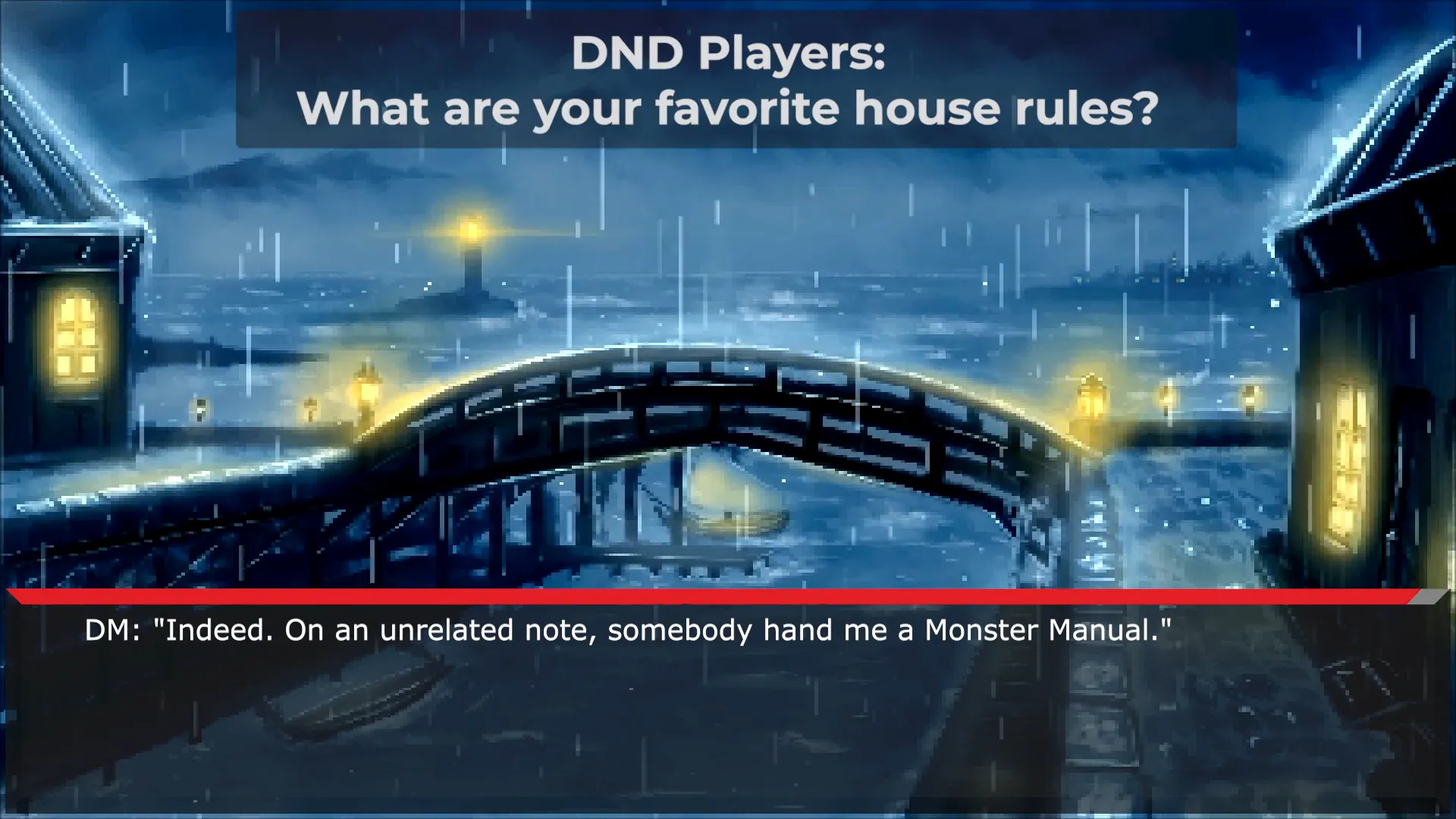
Exhaustion from Reviving
Waking up from unconsciousness during combat can have serious repercussions in this house rule. If a character is revived while in battle, they incur one level of exhaustion for each time they are brought back to consciousness. This rule applies to both players and enemies, increasing the stakes in combat scenarios.
The rationale behind this is to create a sense of danger and consequence. A character experiencing a near-death moment should feel the weight of that experience, and this rule ensures that players think twice before recklessly throwing themselves into danger. After the battle concludes, players can rest and remove any exhaustion levels accumulated during the fight.
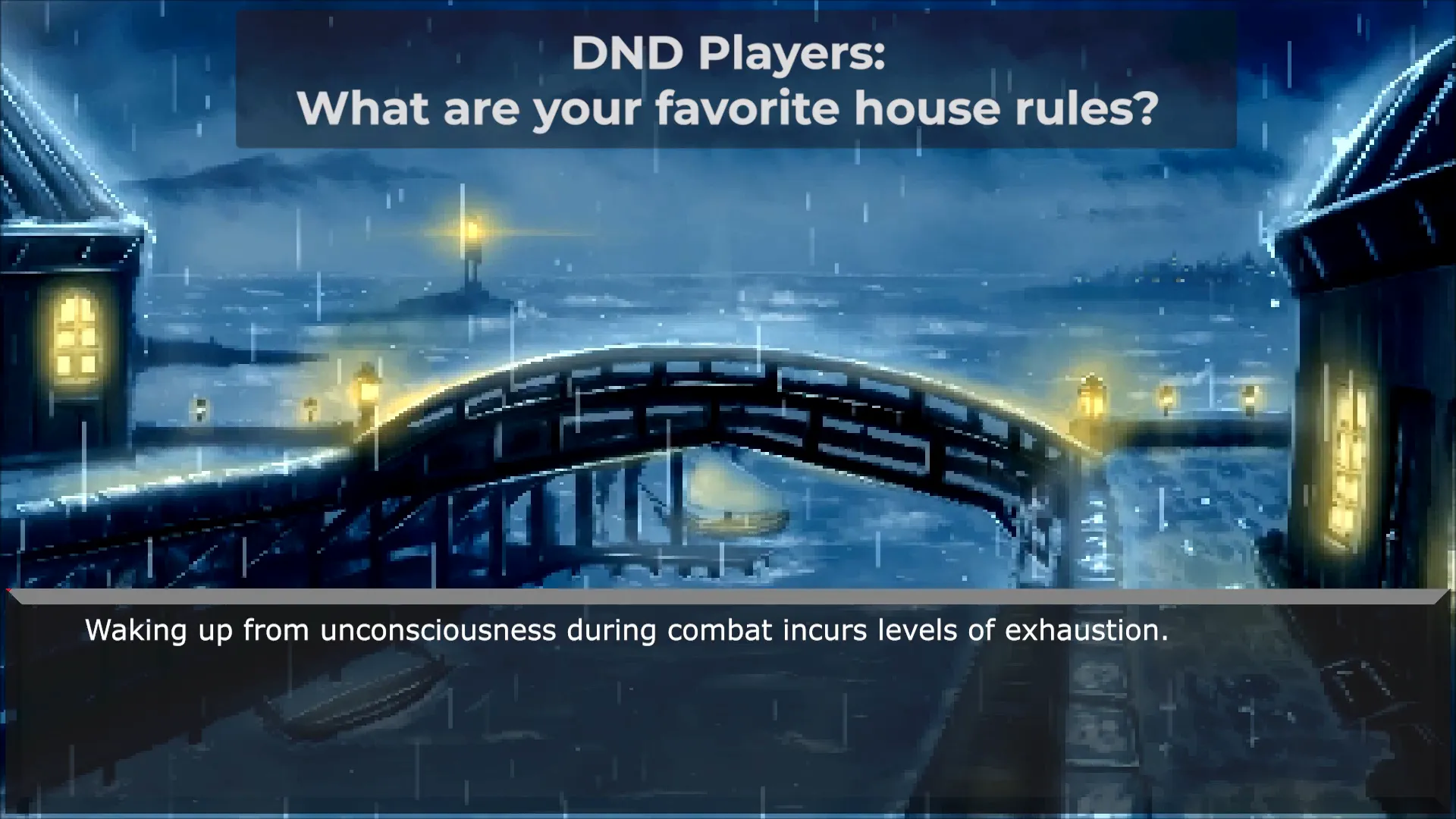
Simplified Encumbrance Rules
Encumbrance can often bog down gameplay, leading to unnecessary complications. A straightforward approach to encumbrance allows players to disregard weight restrictions for armor and weapons as long as they are actively wearing them. This adjustment alleviates the annoyance of tracking every piece of gear while still maintaining some level of realism.
Moreover, introducing a feat that allows players to add their Dexterity modifier to ranged damage rolls can make ranged characters significantly more effective. This tweak can lead to memorable moments where a character with high Dexterity dominates the battlefield, showcasing the benefits of skillful play over cumbersome rules.
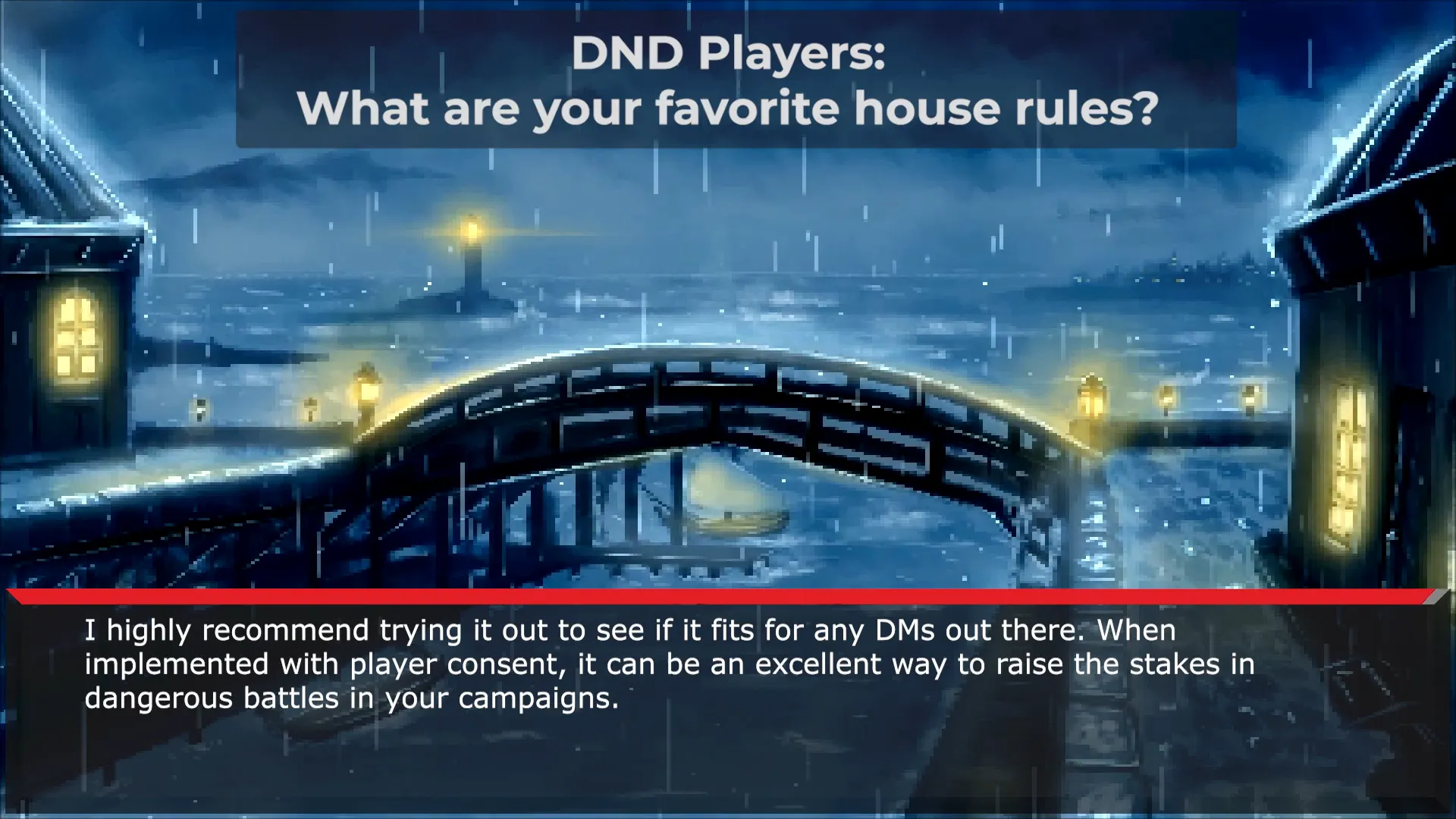
Detect Plot Spell
The “Detect Plot” spell serves as a humorous yet practical tool for players. Once per session, any character can cast this spell—regardless of their usual abilities—to pinpoint the direction of the next plot point or crucial NPC. It acts as a lifeline for groups that may find themselves stuck, providing a gentle nudge in the right direction.
While it’s meant to be used sparingly, the hilarity of a large, flashing red arrow indicating where the party should go can lighten the mood. Even if it’s never used, the mere existence of this spell can inspire creativity and laughter around the table.

The Power of Religious Prayers
Incorporating religious elements into gameplay can deepen the narrative. Characters with a strong faith can call upon their deity for assistance in dire situations. The DM rolls secretly to determine if the prayer is answered, adding an element of suspense to the process.
The outcomes of these prayers can vary widely—from summoning a spiritual weapon to influencing enemy behavior. This unpredictability keeps players engaged and invested in their characters’ journeys, as they seek divine intervention in crucial moments.
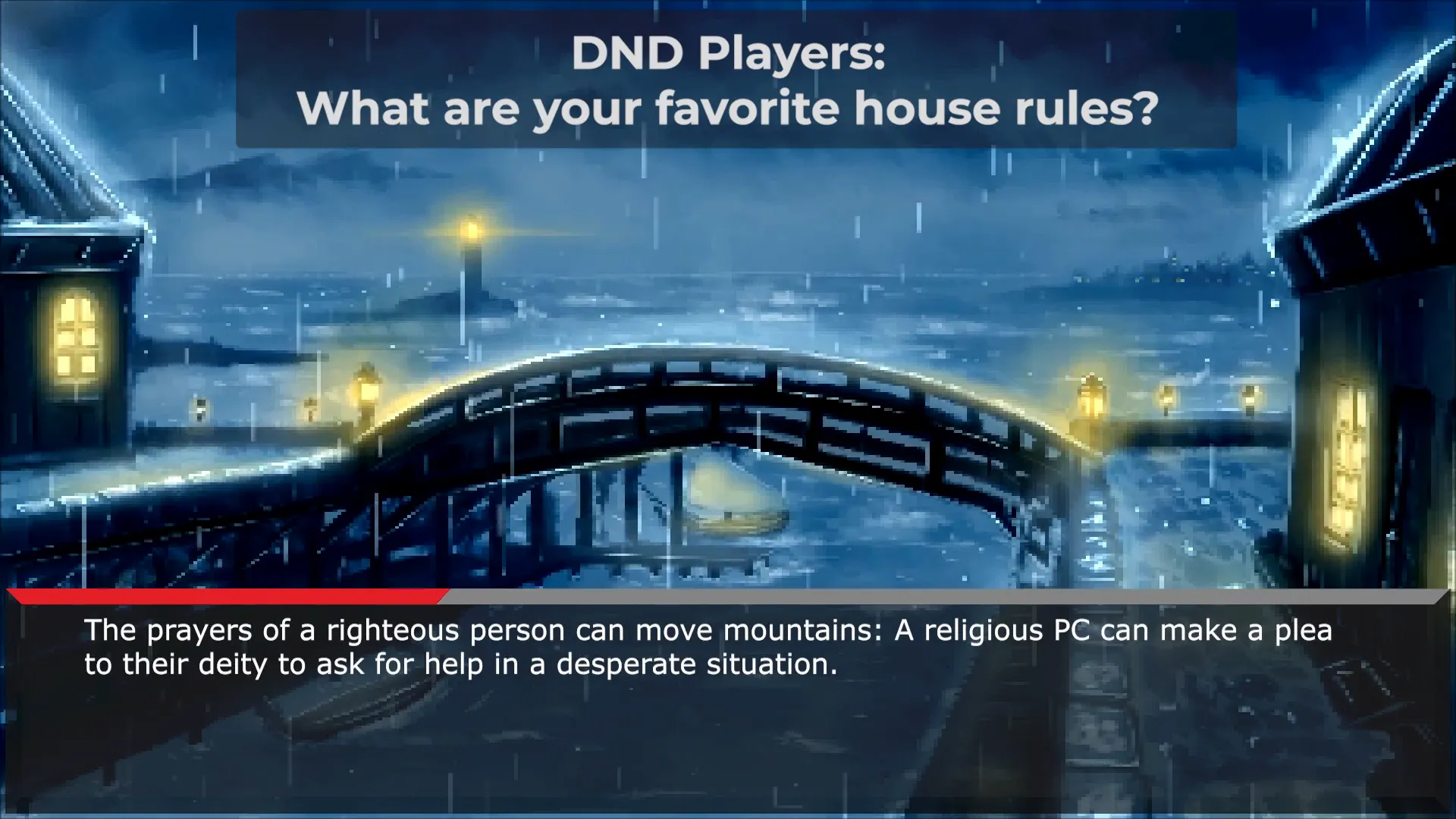
House Rules for the Toughness Feat
The Toughness feat often feels underwhelming in standard gameplay. By adapting it to resemble the mechanics from Knights of the Old Republic, players can gain additional hit points per level. This adjustment allows the feat to stack, making it a more appealing choice for character development.
This modification encourages players to consider their survivability more seriously, making Toughness a viable option in character builds. Such changes can lead to more robust characters, enhancing the overall experience in campaigns where every hit point counts.
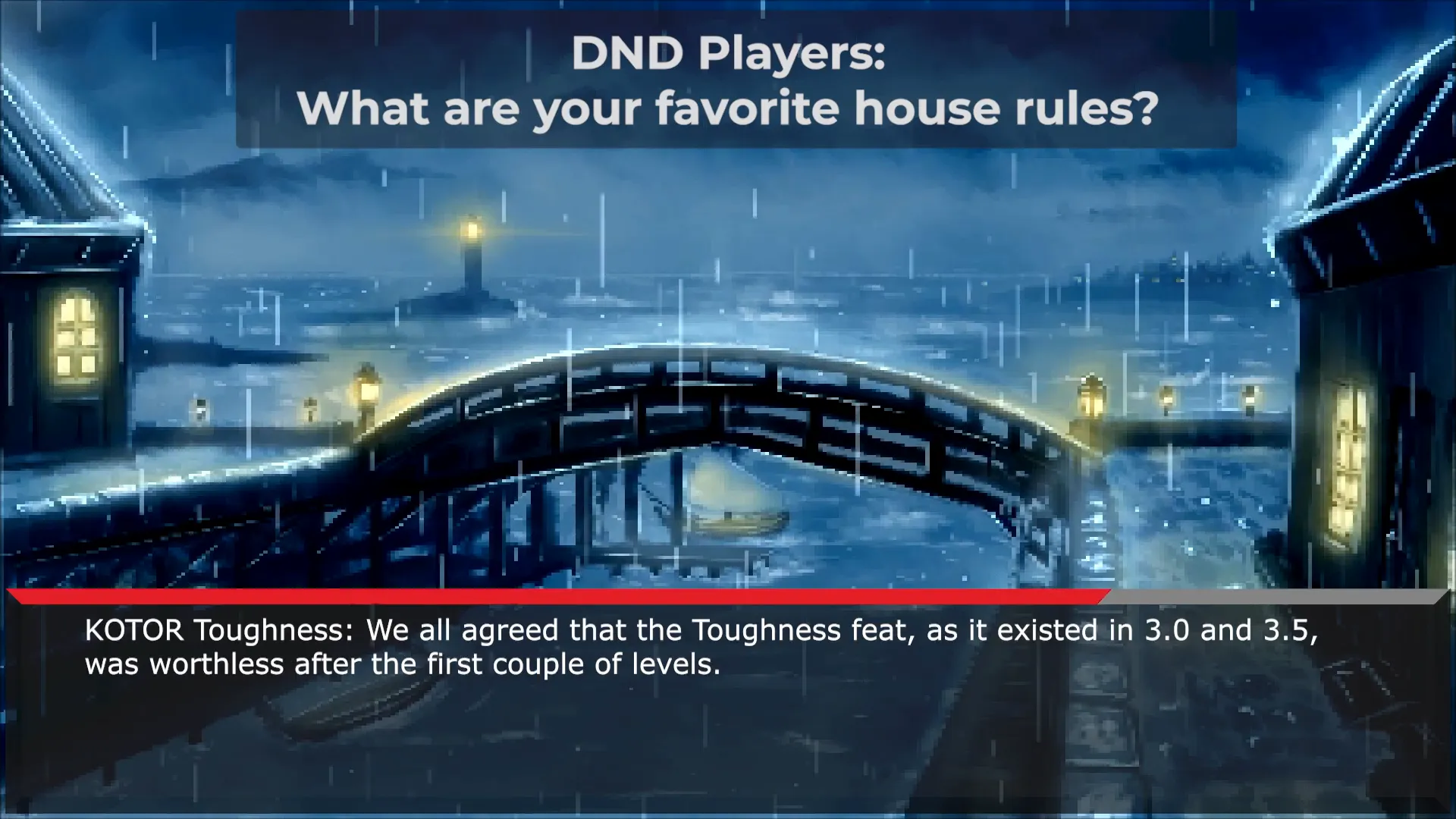
Conclusion and Call to Action
Implementing house rules in Dungeons & Dragons can transform ordinary gameplay into extraordinary adventures. By encouraging creativity, fostering narrative depth, and enhancing player engagement, these rules create memorable moments at the table.
We invite you to share your favorite house rules in the comments below. What unique twists have you introduced to your campaigns? Let’s inspire each other to enhance our D&D experiences!
FAQs About D&D House Rules
- What are house rules? House rules are custom modifications to the standard gameplay mechanics of Dungeons & Dragons, tailored to fit a group’s preferences.
- How do I introduce house rules to my group? Discuss potential changes with your players before implementing them. Ensure everyone is on board and understands the new mechanics.
- Can house rules affect game balance? Yes, house rules can impact balance, so it’s essential to consider how changes may influence gameplay dynamics.
- What if my players don’t like a house rule? Be open to feedback and willing to adjust or remove rules that don’t resonate with your group.





